Starting a new business can be an exciting venture full of opportunities, challenges, and rewards. To ensure your business is set up for long-term success, it is essential to consider and address the legal aspects that establish a strong foundation from the outset. British Columbia presents a thriving environment for entrepreneurs, with specific laws, regulations, and requirements that govern the creation and operation of businesses within the province.
In this article, we will discuss the fundamental legal aspects to consider when starting a new business in British Columbia, including choosing the appropriate business structure, registering your business name, understanding regulatory and licensing requirements, and the importance of well-crafted contracts to protect your interests.
Additionally, we will explore how the experienced business lawyers at Pathfinder Law can provide the essential guidance and support you need to ensure your business is built on a secure legal footing.
1. Choosing the Right Business Structure
Selecting an appropriate business structure is a crucial legal aspect of starting your business, as it affects the ownership, taxation, and liability of your enterprise. In British Columbia, there are three primary business structures to consider:
– Sole Proprietorship: A simple and inexpensive structure in which an individual owns and operates the business. The owner assumes all legal and financial responsibilities but can enjoy the benefits of limited startup and operating costs.
– Partnership: A collaboration between two or more individuals to operate a business, sharing profits, losses, and responsibilities. Partnerships can be either general or limited, depending on the degree of liability and involvement of the partners.
– Corporation: A separate legal entity from its owners (shareholders), offering limited liability and the potential for more accessible financing. Corporations require formal registration and incur additional costs relating to ongoing regulatory compliance.
2. Registering Your Business Name
In British Columbia, registering your business name is critical to protecting your brand and ensuring compliance with the provincial regulations. The Business Corporations Act and the Partnership Act stipulate name reservation and registration requirements for corporations and partnerships, while sole proprietorships operating under a name different from the individual’s full legal name must also register under the Business Names Registration Act.
3. Navigating Regulatory and Licensing Requirements
Starting a new business in British Columbia often requires compliance with various federal, provincial, and municipal regulations and licensing requirements, depending on the specific nature of your venture. These may include:
– Business licences: Most businesses require a business licence to operate within a specific municipality.
– Professional licensing: Some professions and occupations require additional permits or licences, governed by regulatory bodies or agencies.
– Taxes and payroll: Businesses must register for and collect applicable federal and provincial taxes, as well as manage payroll deductions and remittances if employing staff.
Understanding and adhering to these requirements is essential to avoid legal complications and ensure your business operates legitimately within the province.
4. Drafting Comprehensive Contracts and Agreements
Developing thorough contracts and agreements is crucial in safeguarding your business interests, minimizing disputes, and providing clear expectations for all parties. Some common business contracts include:
– Shareholder agreements: For corporations, outlining the rights, responsibilities, and ownership of shareholders.
– Partnership agreements: For partnerships, defining the roles, responsibilities, contributions, and profit sharing arrangements between partners.
– Independent contractor agreements: When engaging the services of independent contractors, establishing the scope of work, payment terms, and other relevant details.
– Employment contracts: Outlining the rights and obligations of both employers and employees.
Relying on Pathfinder Law for Comprehensive Business Law Support
1. Guidance on Choosing the Appropriate Business Structure
The experienced attorneys at Pathfinder Law can help you assess your business’s unique needs and circumstances, offering expert guidance on selecting the most suitable business structure to meet your goals and protect your interests.
2. Assistance with Business Name Registration
Our team can support you in the process of researching, reserving, and registering your business name, ensuring that it complies with all applicable laws and regulations in British Columbia.
3. Navigating Regulatory Compliance and Licensing
Our attorneys can identify the relevant regulatory and licensing requirements for your business, guiding you through the process of obtaining the necessary permits, registrations, and permissions to ensure your business operates legally and smoothly.
4. Drafting and Reviewing Business Contracts and Agreements
At Pathfinder Law, we can expertly draft, review, and update your business contracts and agreements, ensuring they reflect your unique needs, protect your interests, and minimize your exposure to legal disputes.
Final Thoughts
Starting a business in British Columbia is an exciting journey rife with potential rewards and challenges. By thoroughly addressing the essential legal aspects of setting up your business, you can create a stable foundation for long-term success. Utilizing the expertise and support of Pathfinder Law’s dedicated attorneys can ensure your business is built on a solid legal footing, protecting your interests and helping you navigate the complexities of business law with confidence and ease.
Trust our experienced team to guide you along the path to success, with personalized solutions tailored to your unique business needs every step of the way. Contact us today to schedule an appointment with a business lawyer in Abbotsford!








